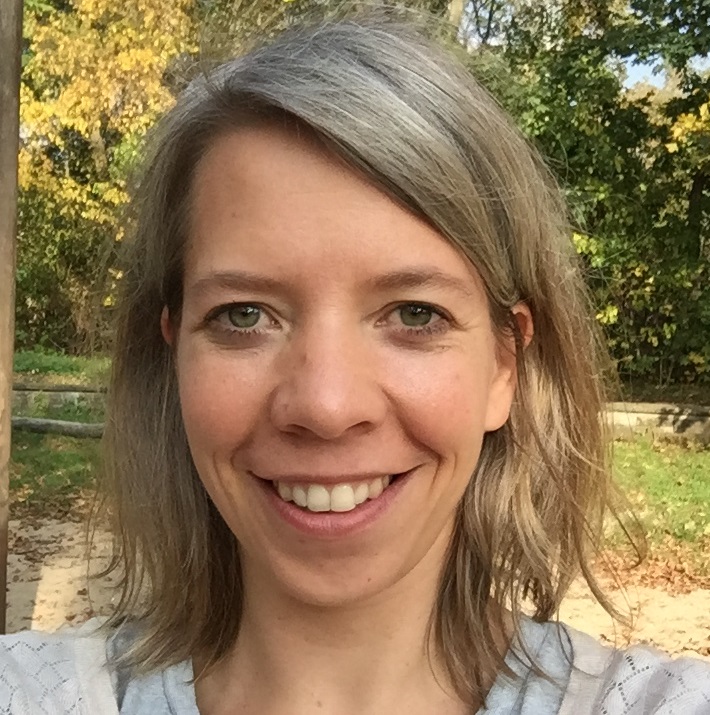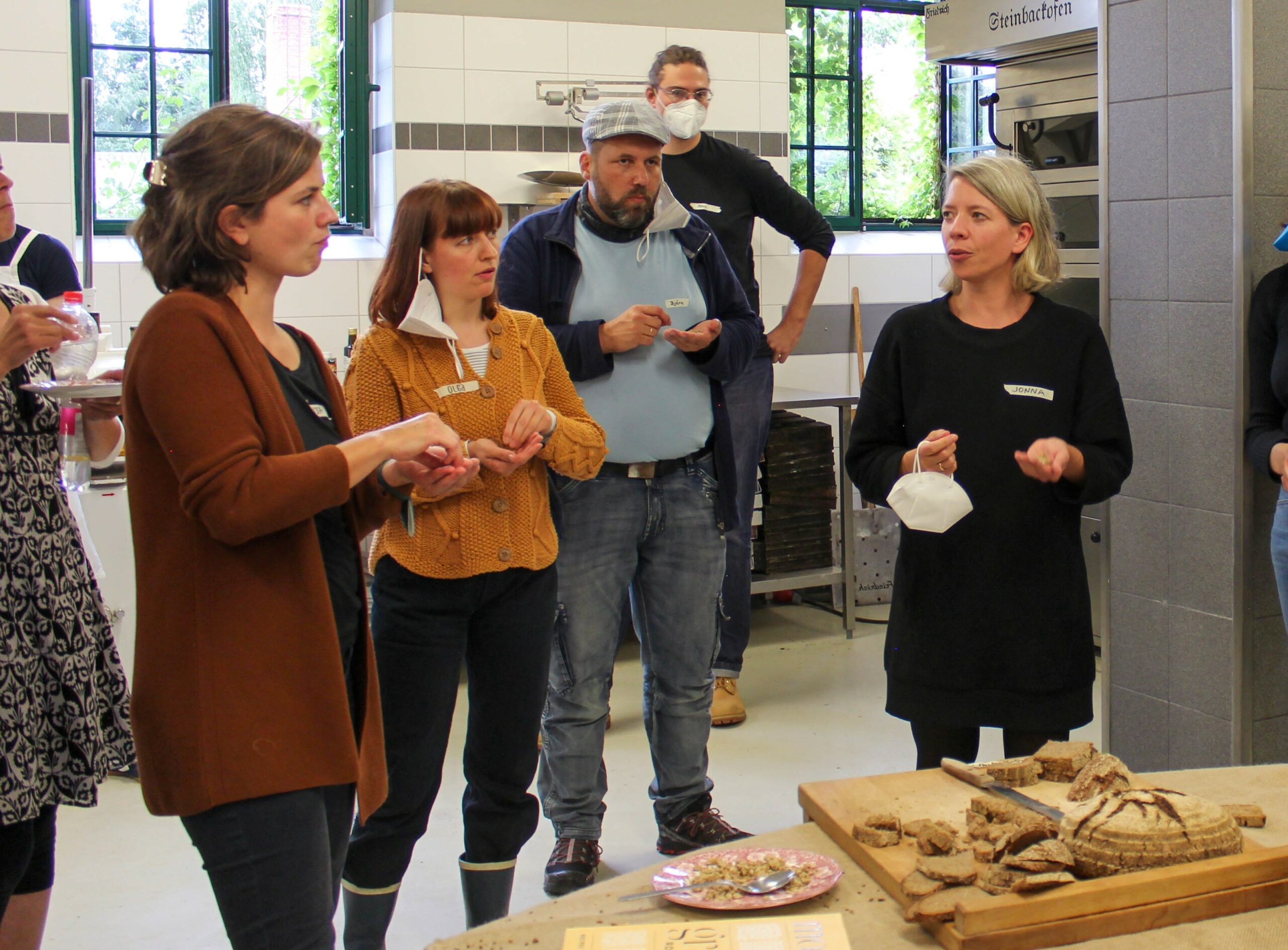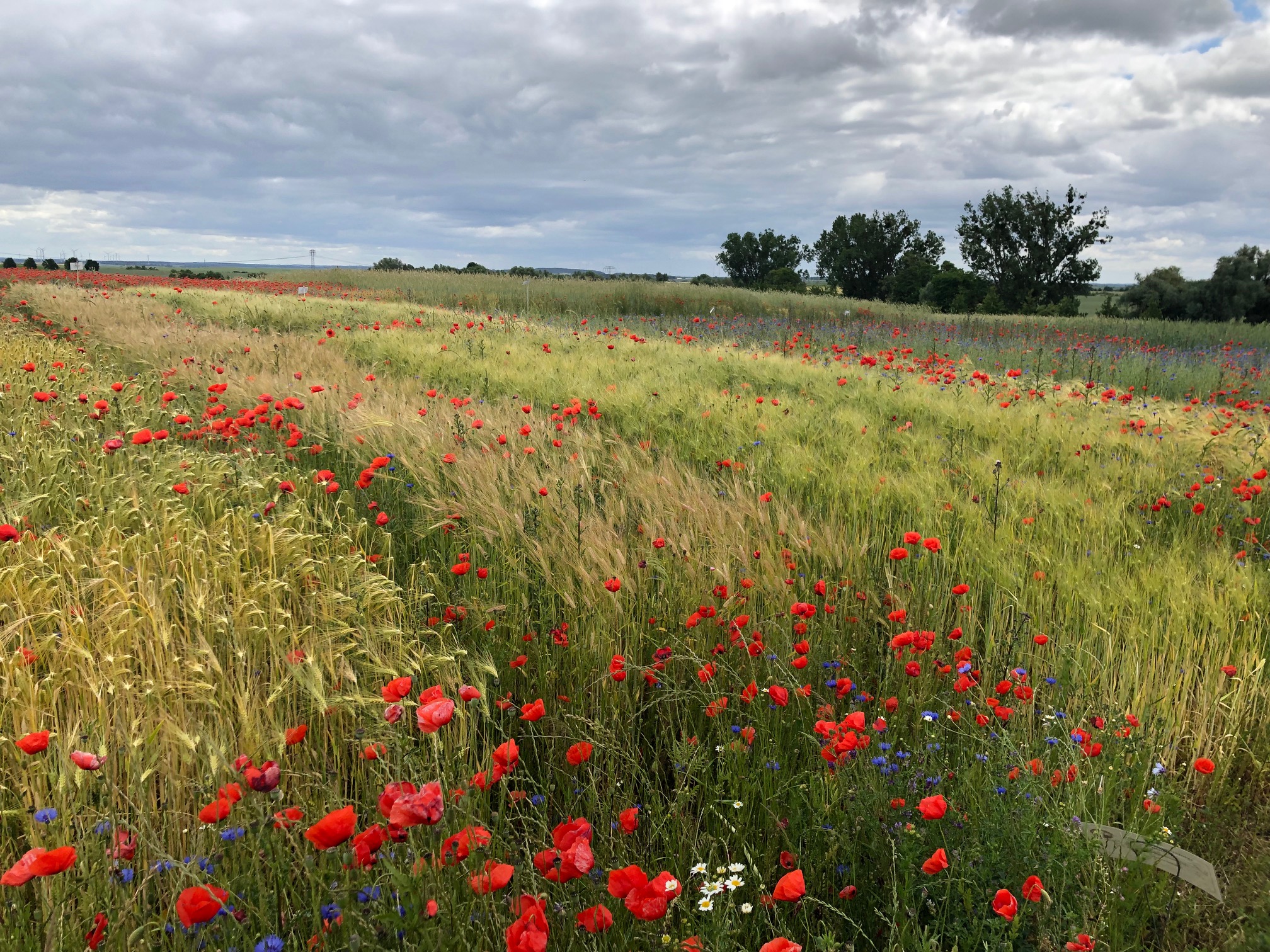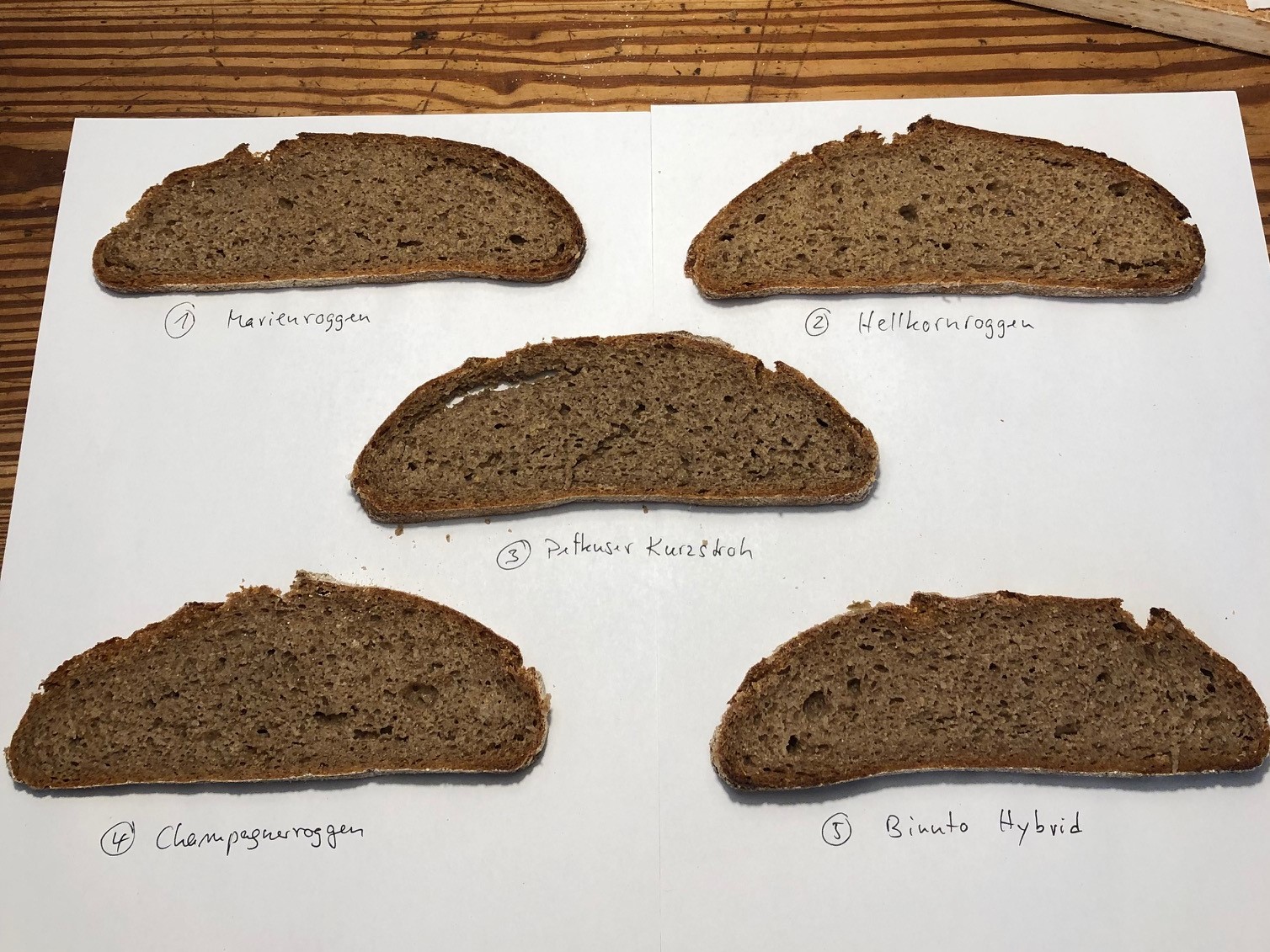Jonna Meyer-Spasche

Jonna Meyer-Spasche has been putting her hands into the grain bags of Bohlsener Mühle since she was a child. Her fascination with grains has remained, leading her to become one of the initiators of Korn.Labor, a network and experimental space for anyone who wants to do more with grains and pulses. In addition, she works for Bohlsener Mühle in Berlin to make the food system more sustainable.
Dear Jonna, can you say a few words about yourself and the field you work in?
I work for Bohlsener Mühle, an organic grain producer based in Lüneburger Heide. I also grew up there but have been living in Berlin for a few years.
Now I am setting up the KornLabor here.
You founded KornLabor together with your colleagues. What is KornLabor and what do you want to achieve with it?
Exactly! I am working on this idea with Olga Graf and Laurent Mekul. We want more diversity for grains along the value chain – in the fields, production and on our plates. We also want to build our own mill which can be used for milling small quantities of diverse raw materials. We want to sell the products to consumers via market stalls and online, but also to bakeries and other companies who want to have special grains or pulses from the region. We also want to build a network for all participants to exchange ideas and to collaborate on experiments.
What does diversity mean to you, what potential do you see in it?
Diversity is everything! The cereals and pulses available on the market today are incredibly uniform – they are regarded as interchangeable mass products. In organic food stores you can find not only wheat and rye flour, but also spelt, emmer or einkorn – that’s something. But if you want to know details about the varieties, it’s already difficult.
We once experimented with five rye varieties, and made five different sourdough breads: they really tasted different! We are missing out in terms of taste experiences, just because the system is so focused on the industry!
We need much more diversity in the fields, for biodiversity, but also to better adapt to climate change. It’s about varieties and species, so also buckwheat, amaranth, oat, barley, field bean, chickpea, lentil, pea, what goes well with the site and is necessary for crop rotation. And then what great things you can make out of it if you just try it. I could talk for hours about this topic.
“Here, we all still have a lot to try out and learn, and that is why the cooperation of all participants is so important. So that risks can be taken together and made manageable through sharing. And so that we understand what the needs of the other players are and what we can work with.”
How would the optimal grain value chain look to you?
Diverse, of course! Which also means smaller, more decentralized. Of course you need a few large mills and fabricators to process large quantities of grain to feed the world. But the small and medium sized companies have simply died in the last decades, because it was all about efficiency. However, diverse grains cannot be processed industrially because the qualities fluctuate, because some of them have very specific requirements. Wheat and rye are not complicated, but spelt or barley must first be husked, millet must be dried immediately and is more complicated to clean because of the small grains, and so on. Processing plants for pulses for human consumption are totally uncommon.
So we need a variety of cleaning and milling companies, ideally well distributed across the country, so that farmers have more options to diversify their crops since they can find the necessary partners in their region. Particularly in eastern Germany, small-scale farming is often difficult because the fields and farms are so huge. They face limitations with new crops, because they don’t know where to pass them on. Especially because these grains require a dedicated marketing strategy, as they are more expensive to produce during the experimental phase.
A central aspect of your work is building networks. Why do you think this is important?
This is connected directly with the topic of the value chain: We believe that greater grain diversity has immense potential, at all stages. In breeding, or even in the recultivation of old varieties, in agriculture, in processing, all the way to the use of these grains.
Here, we all still have a lot to try out and learn, and that is why the cooperation of all participants is so important. So that risks can be taken together and made manageable through sharing. And so that we understand what the needs of the other players are and what we can work with.
We also prefer to talk about a value network rather than a chain, because everyone should talk to each other instead of signals running from A to B to C.
“We are missing out in terms of taste experiences, just because the system is so focused on the industry! We need much more diversity in the fields, for biodiversity, but also to better adapt to climate change.”
Who are currently important partners for your work and with whom would you like to cooperate more in the future?
At the moment, it is mainly farmers who are willing to experiment, from whom we want to get our first grains in order to grind them via Mockmill and then sell them. Mockmill is our first official partner and provides us with mills and flakers. Next we would like to work more closely with bakeries and other fabricators who are willing to experiment. Manufacturers of processing equipment would also be great as partners – for the challenge of small-scale grain cleaning.
Where did you get this passion for grains?
The Bohlsener Mühle belongs to my uncle Volker Krause, so I’ve been breathing in the smell of the old water mill since I was a little girl – I love it. And of course I ate lots and lots of whole grains. We were “granolas”, “Körnerfresser”, when those were swear words. And now – the more I look into the whole subject, the more fascinating I find it.
In addition to your work at KornLabor, you are also politically active in Bund Ökologischer Lebensmittelwirtschaft (BÖLW). What goals are you pursuing with your commitment?
I do this for the Bohlsener Mühle or for my uncle, who is a board member of the BÖLW. This is the German umbrella organization of organic associations such as Bioland, demeter, Naturland, AöL, BNN, etc. I think the work of the association is totally important; after all, it is committed to the food system transformation, and to sustainability in the entire food industry. Again, it is so important to look at the entire value chain: the goal of 30% organic farming by 2030 can only be achieved if there are also processing companies and traders who take in the raw materials, and preferably regionally. If there is no organic butcher in a region or no company that preserves or freezes seasonal surpluses of fruit and vegetables, farmers will not be willing to change over. For example, we are working with the association to develop recommendations on what would be suitable policy measures to promote such structures.
“We believe that greater grain diversity has immense potential, at all stages. In breeding, or even in the recultivation of old varieties, in agriculture, in processing, all the way to the use of these grains.”
Have you already seen a noticeable change in the food system over the last few years?
For sure organic farmers have been doing a lot of unconventional stuff for a long time, but I think it’s nice to see how it’s changing its image. For instance younger farmers or start-ups or initiatives like Kantine Zukunft are driving the sustainability issue and the food revolution in a completely different way. Finally becoming mainstream, that would be great for this topic.
Why did you become a member of Die Gemeinschaft and what do you wish for the cooperation?
What I like about Die Gemeinschaft is that it’s full of people who are really doing things. Everyone wants to change something and there is a lot of overlap – people talk openly with each other and enjoy working together without worrying that the others will steal an idea or something. It’s so positive, trusting and constructive, it’s a nice atmosphere. And whenever you get together, it’s about food and pleasure. What could be better!



